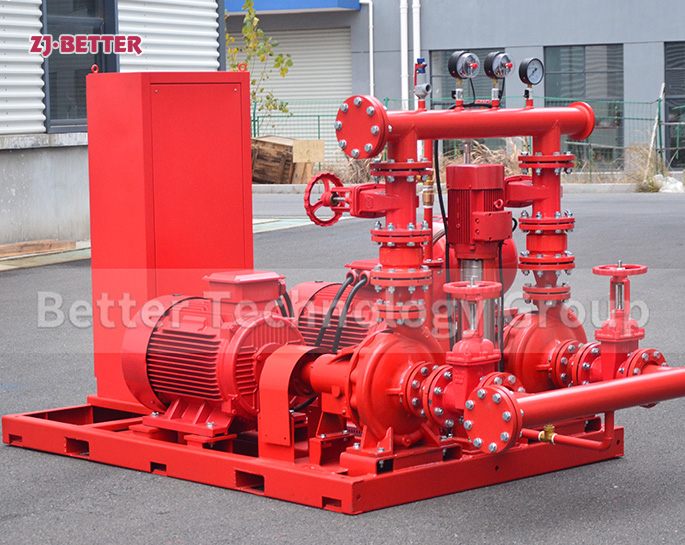How to Maintain Fire Pumps in Extreme Weather Conditions
Fire pumps play a crucial role in safeguarding properties and lives, ensuring that water is reliably supplied to extinguish fires. Extreme weather conditions, such as freezing temperatures or excessive heat, can significantly impact the performance of these vital systems. Regular maintenance and preventive measures are essential to keep fire pumps functioning efficiently in harsh environments. In this article, we’ll provide expert tips for maintaining fire pumps in extreme weather conditions to ensure they perform when you need them the most.

1. Regular Inspection and Testing
No matter the weather, regular inspections are key to identifying potential problems before they turn into major issues. Fire pumps should be tested periodically to verify that they are ready to operate at full capacity. In freezing conditions, check for ice buildup around critical components, especially in the water supply line. In hot climates, ensure that the pump's cooling system is working effectively and that the pump motor is not overheating.
2. Winter Maintenance Tips
In cold climates, fire pumps are particularly vulnerable to freezing, which can damage vital components like pipes, valves, and seals. Here are a few preventive measures:
- Insulate pipes: Use insulating materials to cover exposed water pipes and prevent freezing.
- Heated enclosures: Install heating systems in pump rooms to maintain a minimum temperature that prevents freezing.
- Drain water lines: In regions where the fire pump won’t be used for an extended period, drain the water lines to avoid freezing and potential rupture.
3. Summer and Heat-Related Maintenance
High temperatures can stress fire pump systems, especially in areas with prolonged heatwaves. To keep your fire pumps operational during extreme heat:
- Check coolant levels: For diesel engine pumps, ensure coolant levels are adequate to prevent engine overheating.
- Monitor the pump room temperature: Ensure the temperature in the pump room does not exceed safe operating conditions. If necessary, install fans or air conditioning to regulate temperature.
- Clean filters regularly: Dust and debris can clog filters and reduce efficiency. Clean or replace air filters to ensure proper airflow.
4. Lubrication and Fluid Maintenance
Extremes of hot and cold temperatures can affect the viscosity and effectiveness of lubricating fluids. Check and replace oils and lubricants in fire pump systems to avoid unnecessary wear. In winter, lubricants may thicken, while in the summer, they may thin out too much, reducing their protective properties. Ensure your pump is using the appropriate fluid for the given weather conditions.
5. Protect the Electric Components
Electric fire pumps are susceptible to moisture and dust accumulation, which can hinder performance during extreme weather. Consider the following:
- Seal all electrical connections: Ensure all connections are sealed properly to avoid water ingress, which could short-circuit the system.
- Install surge protectors: In areas prone to electrical storms or power fluctuations, surge protectors can safeguard electrical systems.
6. Use Quality Materials for Critical Components
Using high-quality, weather-resistant materials for pump components ensures longevity and performance in extreme weather. Stainless steel or corrosion-resistant alloys are preferred for components that may be exposed to moisture or intense heat.
7. Establish Emergency Plans
In extreme weather conditions, it’s crucial to have a clear emergency plan in place. Ensure that your staff is trained in how to properly operate and troubleshoot fire pumps in varying weather conditions. Having a backup power source, such as a diesel generator, is also recommended to keep your fire pump systems running when the primary power supply is compromised.
Conclusion
Maintaining fire pumps in extreme weather conditions is vital for ensuring that they perform optimally when needed. By following these maintenance tips, you can prevent system failures caused by extreme cold or heat. Regular inspections, proper lubrication, and attention to the pump’s components will prolong the life of your fire pump and ensure that it’s always ready to protect lives and property.

.png)
.png)

.png)


